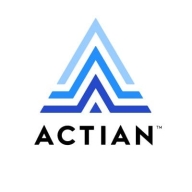

Teradata and Actian Ingres compete in data management solutions. Teradata holds an edge in performance and scalability due to its advanced analytics and data integration.
Features: Teradata handles large-scale data analytics with robust warehousing, extensive scalability, and powerful integration. Actian Ingres focuses on open-source architecture, suited for smaller deployments with high flexibility and low overhead.
Ease of Deployment and Customer Service: Teradata's complex deployment offers comprehensive support, ideal where significant infrastructure is essential. Actian Ingres's simpler setup benefits from agility and effective support, perfect for efficient installations.
Pricing and ROI: Teradata incurs higher initial costs for enterprise capabilities, yielding significant returns from data insights. Actian Ingres's budget-friendly model presents low costs and quick ROI, appealing for niche applications with limited resources.
| Product | Market Share (%) |
|---|---|
| Teradata | 9.4% |
| Actian Ingres | 2.2% |
| Other | 88.4% |

| Company Size | Count |
|---|---|
| Small Business | 28 |
| Midsize Enterprise | 13 |
| Large Enterprise | 52 |
Actian’s Ingres is a leading, enterprise-grade database management system designed to reduce IT costs and time-to-value, while delivering the strength and features expected from an enterprise-class database. Ingres 10.2 is the latest version of the database, containing enhancements that will make it easier to internationalize customer applications. Along with improved performance and reduced configuration overhead, users can take their first steps into big data analytics with the new Window functions.
Teradata is a powerful tool for handling substantial data volumes with its parallel processing architecture, supporting both cloud and on-premise environments efficiently. It offers impressive capabilities for fast query processing, data integration, and real-time reporting, making it suitable for diverse industrial applications.
Known for its robust parallel processing capabilities, Teradata effectively manages large datasets and provides adaptable deployment across cloud and on-premise setups. It enhances performance and scalability with features like advanced query tuning, workload management, and strong security. Users appreciate its ease of use and automation features which support real-time data reporting. The optimizer and intelligent partitioning help improve query speed and efficiency, while multi-temperature data management optimizes data handling.
What are the key features of Teradata?
What benefits and ROI do users look for?
In the finance, retail, and government sectors, Teradata is employed for data warehousing, business intelligence, and analytical processing. It handles vast datasets for activities like customer behavior modeling and enterprise data integration. Supporting efficient reporting and analytics, Teradata enhances data storage and processing, whether deployed on-premise or on cloud platforms.
We monitor all Data Warehouse reviews to prevent fraudulent reviews and keep review quality high. We do not post reviews by company employees or direct competitors. We validate each review for authenticity via cross-reference with LinkedIn, and personal follow-up with the reviewer when necessary.